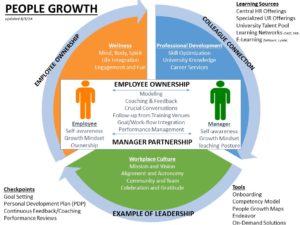If you FAIL, never give up because F-A-I-L means “First Attempt In Learning.”
END is not the end. In fact, E-N-D means “Effort Never Dies.”
If you get NO as an answer, remember NO means “Next Opportunity.”
Be Positive!
Author Archives: Bryan Reaume
Optimizing Your ROI of Training Venues
This is an excerpt from, “The State of Professional Development in Higher Education.” Read the full report here.
As you plan your attendance at a professional development (PD) event or program, consider these 10 practices for making the most of the experience:
BEFORE THE EVENT
- Commit to yourself that you will take time to reflect and process what you learn at the event. For example, can you stay an extra afternoon or even an extra day following the event? If not, block time on your calendar for the day you return from the event for reflection. The challenge in returning immediately to your busy office and catching up on your day-to-day tasks is that you may not have time to reflect and plan – unless you intentionally schedule that time.
- Schedule a reminder on your calendar for a date 3 months following the conference to review the materials, and to debrief how they’ve informed your thinking and work and how much progress you’ve made.
AT THE EVENT
- For each session you attend at the event, write down one reaction, one takeaway, and one question you have.
- While at the conference, create an action plan. What are 2-3 action steps you can commit to? In your plan, include: How much time will you need to complete these steps? What resources will you need? Which allies on campus can be helpful to you? How will you know if you’re successful?
- At the event, identify a thought partner and schedule a follow-up conference call with your partner, to take place 2-4 weeks following the program. Don’t leave the meeting without having the call on the calendar!
ON THE WAY HOME
- Use the plane or train ride home to prepare an informal presentation or some informal remarks to distill the most critical ideas from the event and their implications.
BACK ON CAMPUS
- Share your informal remarks with your supervisor to gather his/her input and ideas, and then prepare a formal presentation to share your most important ideas with your colleagues.
- Beyond just a formal presentation, save your conference workbook and other resources from the event, and share these with your colleagues. You could share some reading or an instructional video that you found especially useful. Schedule a “lunch and learn” session with your colleagues to discuss the workbook, video, or article you shared.
- Create and extend your network by carving out one hour in the week after the event to review all the business cards you collected and plan appropriate follow up. Also, did you meet anyone who would be a useful contact for one of your colleagues? Similarly, stay connected with the speakers at the event who resonated with you. Follow them on social media, sign up for their newsletters, and—if appropriate—stay in touch with them.
- Build momentum immediately around your action steps or the new skills you learned at the event. Improve those new skills by practicing; don’t let yourself lose them in the midst of a return to your day-to-day tasks. Can you find someone that you can practice a new skill (like how to have a difficult conversation) with? Can you work with a “test” or “dummy” data set to begin working with some of the new data mining practices you’ve learned? The key is to build momentum by implementing something—even if it’s something very small—within the first few weeks after the event.
ABOUT THE AUTHOR
People Growth Resources and Tools
Consistent with the university’s mission, University Relations promotes the holistic growth of employees. The “people growth” mental model views the whole person, centers on employee ownership and manager partnership, and integrates wellness, professional development, and workplace culture.
Resources and Tools
Training Calendar (UR, HR, OIT)
Spring Learning Programs: Enrollment Now Open
Notre Dame staff are offered a full schedule of professional development opportunities every semester. Topics include Professional Skills, Communications, Teamwork, Leadership, and more.
See details of 2016 Learning Programs.
Register for Learning programs by logging in to Endeavor.
Cancellation Policy: To cancel an enrollment, please cancel in eNDeavor at least three days before the class start date so that waitlisted participants may be notified that a seat is available. Due to high demand and limited seating, departments will be charged $100 for cancellations made fewer than three days before the course start date.
Development-Focused Webconferences
EAB hosts 60-minute webconferences on topics such as driving fundraising via culture and metrics. Once you have initially logged into to EAB.com, registration for webconferences is a simple 3-click process.
See list of EAB webconferences and register now.
See also upcoming webconferences hosted by CASE.

